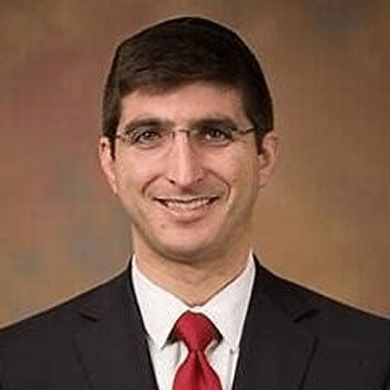Philadelphia Police Brutality Lawyer
Across the United States, minority groups are too often targeted by acts of police brutality, and Philadelphia is no exception. When law officers use unnecessary and excessive force, they should be brought to justice. Police brutality is a human rights violation.
In 2024 alone, Philadelphia saw 13 police-involved shootings that caused five civilian deaths. Three years earlier, a report found that out of more than 9,000 civilian complaints against the Philadelphia Police Department, only 0.5 percent resulted in any recorded consequence beyond a reprimand. Not a single allegation of civil rights violations by officers was upheld.
Were you or a loved one a victim of police brutality?
Attorneys that work with Police Brutality Center may be able to assist you.
"*" indicates required fields
Content Last Updated: December 4, 2025
Key Takeaways
- Between 2013 and 2023, Philadelphia police killed 53 people and faced 2,639 civilian complaints of misconduct.
- Despite thousands of civilian complaints against Philadelphia police officers, almost no civilian allegations result in any consequences for the officers involved.
- If you or a loved one has been the victim of police brutality, Police Brutality Center can connect you with an experienced law firm to pursue justice against he responsible officers and departments.
Police Brutality in Philadelphia: What You Need to Know
The Philadelphia Police Department has a documented history of misconduct dating back many decades. However, misconduct rates have spiked within the past few years after the mass civil unrest following the killing of George Floyd in 2020.
According to Philadelphia’s Police Scorecard, the city has more officers per population than 94 percent of police departments nationwide and more police shootings per arrest than 73 percent of nationwide departments. Based on population, Black people were nearly 4 times more likely to be killed than white people by Philadelphia police between 2013 and 2023.
Between 2013 and 2017, Philadelphia spent an average of $9 million annually to settle misconduct cases. That figure decreased to $7 million annually in 2020 and 2022. However, in 2023 and 2024 alone, federal lawsuits regarding police misconduct cost Philadelphia taxpayers more than $60 million. The payouts ranged from thousands of dollars for false arrests to millions of dollars for police brutality and wrongful convictions.
Key Cases
2020
- In May and June 2020, Philadelphia and much of the United States saw increased civil unrest and demonstrations following the murder of George Floyd in Minneapolis. Soon after these protests, a group of 343 Philadelphia protesters filed a class action lawsuit against the city over the police’s response to the demonstrations, which caused injuries. In March 2023, the city reached a settlement agreement with the protestors, agreeing to pay out $9.25 million in damages.
2021
- The city of Philadelphia paid $2 million to a Black woman who was pulled from a car and beaten by Philadelphia police officers, as well as separated from her toddler for hours.
2023
- Philadelphia police shot and killed Eddie Irizarry during a traffic stop. Philadelphia police originally stated that Irizarry was outside his vehicle, told by officers to drop a weapon, and “lunged at the officers”, prompting the shooting. A day later, the police admitted that Irizarry was actually inside his car during the shooting. The shooting officer, Mark Dial, was initially charged with first-degree murder, but that charge was later dropped. However, in May 2025, Dial was found guilty of voluntary manslaughter, possession of an instrument of crime, and reckless endangerment.
Understanding Police Brutality and Misconduct
Police brutality and misconduct can take many forms. Some of the most common types include false arrests, racial profiling, and excessive force, often involving unwarranted police shootings. False arrests occur when someone is detained without a legal basis, such as probable cause or a warrant. These arrests can often result from racial profiling, a discriminatory practice in which law enforcement officials target individuals as suspects based on their race, ethnicity, religion, or national origin. Excessive force refers to the use of physical force beyond what a reasonable police officer would use to question or apprehend a person.
Legal Rights of Victims
Under the U.S. Constitution, citizens have certain protections. The Fourth Amendment protects citizens from unlawful searches and seizures of personal property without probable cause or a warrant, while the Fourteenth Amendment guarantees everyone the right to due process of law.
In Pennsylvania and nationwide, states have statutes of limitations for filing personal injury lawsuits, including police brutality claims. Generally, you have two years to file in Pennsylvania. However, when suing a government agency such as a police department or municipality, you may need to file a notice of claim in as little as 90 days. Working with an experienced attorney is crucial to ensure you timely file the proper legal documentation in a timely manner.
Connect With an Experienced Police Brutality Lawyer
Police Brutality Center partners with nationally recognized trial attorney Solomon Radner of Radner Law Group, PLLC, to help victims of police misconduct across the United States. Attorney Radner has been honored as a Super Lawyer since 2014 and named among the Top 40 Under 40 trial attorneys by the National Trial Lawyers Association.

How a Philadelphia Police Brutality Lawyer Can Help You
An experienced Philadelphia police brutality lawyer can assist you in navigating the complexity of federal and state civil rights laws to hold responsible parties accountable for the harm they caused. Under Section 1983 of the Civil Rights Act, citizens can file lawsuits against state or local government officials or agencies for violating their constitutional or federal statutory rights. Through a civil lawsuit, victims of police brutality may be able to recover financial compensation for pain, suffering, medical bills, lost wages, and more.
The Legal Process
When pursuing a police brutality lawsuit, the first step is contacting an experienced attorney for a consultation to discuss your legal options and expectations for the case. Next, you may wish to file a complaint or report with the Philadelphia Citizens Police Oversight Commission, which works to improve police conduct and accountability. This report may prompt the prosecution or punishment of the officers involved, but it also can serve as evidence in a civil lawsuit.
A civil rights lawyer can then work with you to gather as much evidence as possible of the police misconduct, including body or dashboard camera footage, police reports, witness testimony, medical records, and more. If you have enough evidence to file a case, they will file a lawsuit on your behalf, then work to negotiate a settlement or litigate the case at trial. The defense will likely claim that the officer involved had qualified immunity. However, with enough evidence, your attorney can fight back to hold those parties accountable anyway.
File a Lawsuit for Philadelphia Police Brutality
If you experienced police brutality firsthand or have lost a loved one due to police misconduct, Police Brutality Center can help. We can provide support, informational resources, and access to a network of lawyers who specialize in handling police brutality cases. These attorneys can offer legal assistance to victims seeking justice. By holding police officers and departments accountable for the harm they cause, we can work toward preventing future violence and promoting accountability within law enforcement agencies. To learn more, contact Police Brutality Center today for a free consultation.
Frequently Asked Questions
Many police officers attempt to justify their brutality by claiming their actions were committed in self-defense. However, the repeated pattern of police brutality cases is evidence to the contrary. It’s your attorney’s job to prove in court that self-defense is not a valid excuse for the harm you experienced.
No. You can pursue a civil lawsuit whether or not there is a criminal case against the officer involved in your case. The civil and criminal legal systems operate separately.
The Philadelphia Police Department has guidelines for when officers’ use of force is acceptable. Every incident of deadly force prompts an investigation, and the officer involved is suspended from active duty until the investigation is resolved. Generally, the use of force by police officers is accepted when deemed “reasonable” for the circumstances the officer was in.
